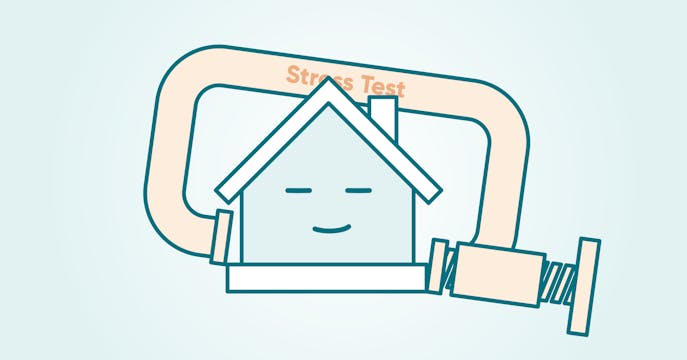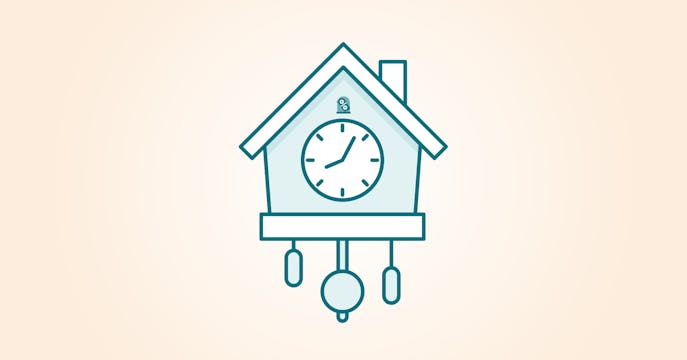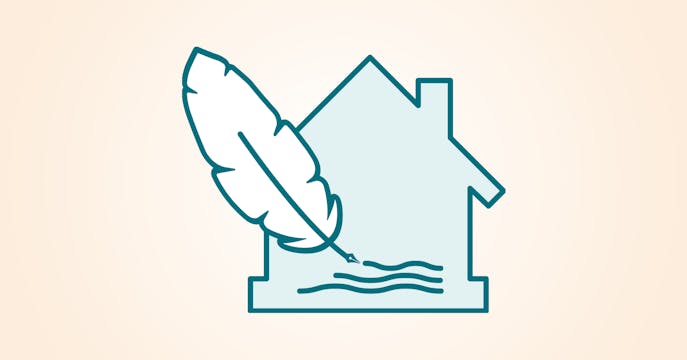An estimated 2.2M mortgage renewals in 2024 and 2025 will run smack into higher mortgage rates. Interest rates coming down within that period will help decrease payment shock.
Lowest Mortgage Rate in Canada. Starting from 2.49%
A New Canadian Mortgage Charter
This government missive outlines some ways a lender might support your mortgage affordability.
The details aren't necessarily new (or actually enforceable), but gathered together for your reference.
Updated September 27, 2024
It's a (federal) nothing burger. But the concern is real.
Updated with 2024 Spring Budget additions.
The federal government is concerned about Canadians concerned about their mortgages.
Released in Fall 2023, the Canadian Mortgage Charter contains guidance for Canadian homeowners who may be struggling with their mortgage payments or worried about their upcoming renewal.
The charter itself may be new, but what it outlines isn't necessarily new. Many of the rules or measures included either already exist or are optional for lenders — who already want to help clients stay as clients and keep their homes.
Have mortgage concerns? We encourage you to contact an expert True North Mortgage broker — we're here to help.
Canadian Mortgage Charter
Help first-time buyers qualify for a better rate.
(2024 SPRING BUDGET ADDITION)
The government would like landlords, banks, credit bureaus, and fintech companies to help ensure that on-time rental payment history can be taken into account for easier first-home mortgage qualification and access to lower mortgage rates.
It's unclear what efforts or policies are needed to accommodate this request or if privacy and accuracy concerns may arise when providing or obtaining this information.
All insured switches can forego the mortgage stress test.
(ALREADY EXISTED)
When switching their mortgage to a different lender, insured mortgage holders (who originally bought with less than 20% down payment and haven't refinanced) can be re-qualified at their contract rate instead of the higher mortgage stress-test rate (5.25% or the contract rate plus 2.0%, whichever is greater).
This regulation was already part of federal OSFI guidance (Office of the Superintendent of Financial Institutions) and was quickly adopted by most lenders in the fall of 2023.
[Update: OSFI later removed straight, stand-alone uninsured mortgages from the renewal-switch requirement as of November 21, 2024.]
"For lenders, it's 'good business' to use any number of options available to help clients keep their homes and stay on as clients."
– Dan Eisner, TNM Founder and CEO
Extension of amortizations.
(LENDER-OPTIONAL)
According to True North Mortgage Founder and CEO Dan Eisner, "Lenders have any number of options to temporarily bring a client out of default risk — many of them already mandated or are just good business. We always want to help clients avoid default and keep their homes."
This measure suggests that a lender will review your financial and mortgage details and will have to offer a temporary extension of your amortization (vs. an official extension for your next mortgage term, accomplished through a refinance). But your 'relief' will depend on the lender's requirements and the renewal options they are able to offer you.
A temporary amortization extension isn't a foregone conclusion as a mortgage solution — but it's one possible tool in the arsenal.
2024 Spring Budget Update: The government would like lenders to extend permanent 35-year amortizations (accomplished through a refinance) to those who demonstrate a need and meet additional criteria in order to keep their homes. (Note: Permanent extensions result in paying more interest over time.)
No pre-payment penalties charged for relief measures.
(ALREADY EXISTED)
Homeowners at risk of default — at the end of their proverbial mortgage rope — typically won't be charged for paying a larger amount down on their mortgage (over and above their already existing pre-payment privileges) when trying to avoid negative amortization (in arrears).
They also (likely) won't face penalties if they need to sell their home to avoid default (though fees may be applied depending on the lender).
These measures are already outlined within OSFI lender-response guidance to help Canadians keep their homes.
Contact clients 4 to 6 months, or 1 year, before their renewal.
(LENDER OPTIONAL)
You'll automatically enter your 'renewal period' at 4 months (120 days) before your mortgage expiry date, regardless of whether a lender contacts you. We always encourage our clients to take the entire renewal period to let us source out the best options to save on their next mortgage term.
In response to the mortgage charter, lenders or mortgage brokers may extend their contact window to 6 months to advise on your renewal options and outline how your payments or amortization may be affected by higher rates.
But if rates are trending down, it's in your best interest to have your mortgage broker finalize your renewal closer to your expiry date (holding your best rate in case they go up in that time).
2024 Spring Budget Update: The government would like lenders to contact certain clients 1 year before their renewal date to ensure they're on track.
Not charging 'interest on interest' if relief measures are used.
(LENDER OPTIONAL)
If a homeowner goes into arrears (not paying their mortgage payment), either without or with lender approval (e.g. lender allows as a very temporary relief measure to avoid default, for example, if someone lost their job and is hoping to be quickly employed elsewhere) — it results in interest and principal not being paid on schedule.
That unpaid interest gathers more interest (at the contract mortgage rate) — and banks are very likely to charge that extra interest, regardless of the government's urging not to.
The 'interest on interest' acts as a deterrent for default, signals to the homeowner the urgent nature of their mortgage arrears, and helps spur immediate resolution to get their mortgage loan payment back on track.
We serve up great advice and savings.
Again, despite many of the above measures being 'old news' in the mortgage industry, gathering them for at-risk Canadians doesn't hurt.
The release of the mortgage charter may help build awareness and entice those feeling the weight of higher prices and interest rates to look into ways to save on their mortgage.
We highly recommend talking with one of our expert True North Mortgage brokers, who are here to help in your preferred language.
Even if you feel good about your ability to keep up with current interest rates, you may decide to take other actions to help save on interest over the longer term and pay off your mortgage faster.
Give us a shout, anywhere you are in Canada. We're available online, by phone or email, or drop in to see us in person at a nearby store. We also have Mobile Mortgage Brokers who may be in your area.
Your best rates on a (stress-free) silver platter.
More mortgage news to munch on

Insured mortgage? Switching just got easier.
Removal of the mortgage stress test can help you find a better deal.

Have to renew before rates drop?
So much for timing. What choices can save you the most?

2024 Budget: Housing Updates
Here's what the federal gov't has inked and aimed at home buyers and owners.

